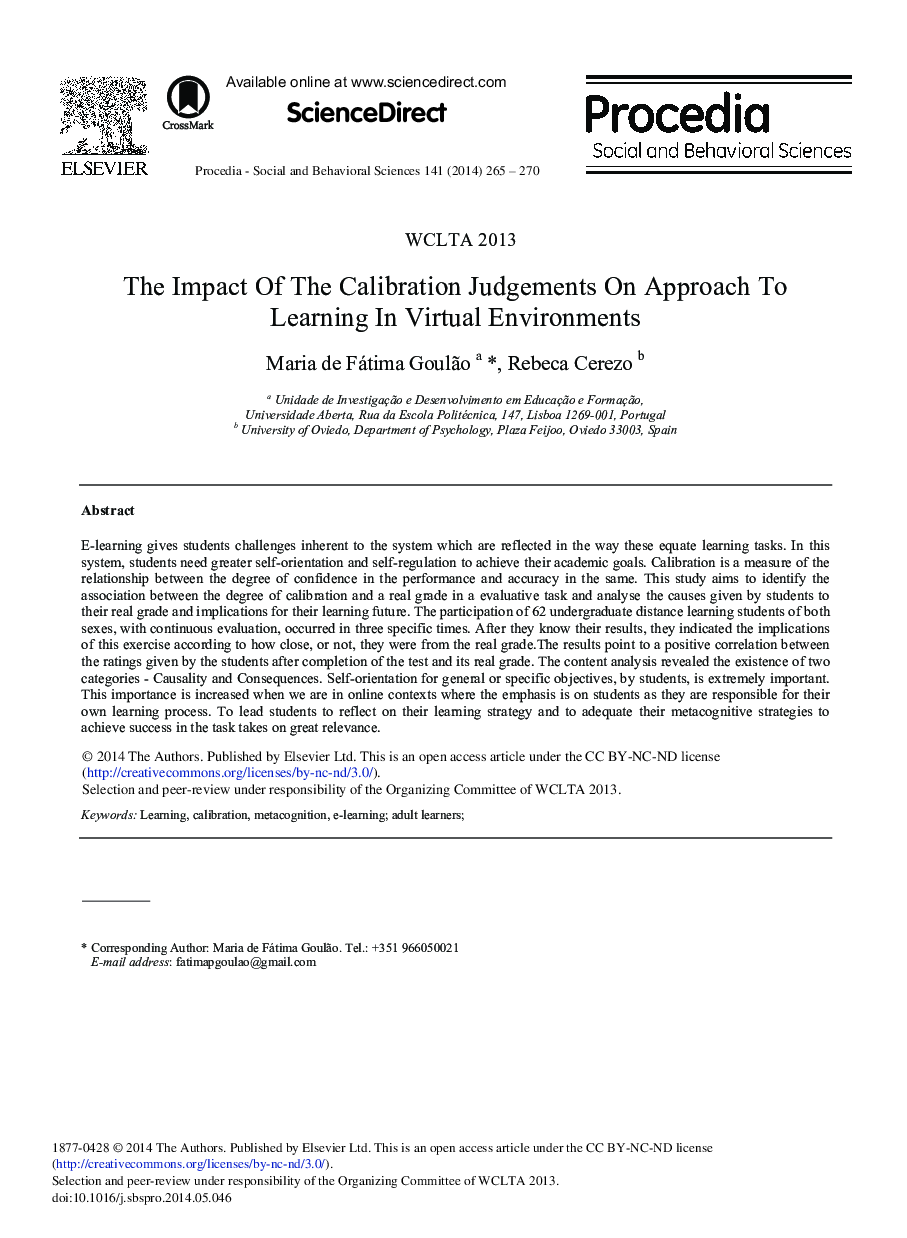| Article ID | Journal | Published Year | Pages | File Type |
|---|---|---|---|---|
| 1113241 | Procedia - Social and Behavioral Sciences | 2014 | 6 Pages |
E-learning gives students challenges inherent to the system which are reflected in the way these equate learning tasks. In this system, students need greater self-orientation and self-regulation to achieve their academic goals. Calibration is a measure of the relationship between the degree of confidence in the performance and accuracy in the same. This study aims to identify the association between the degree of calibration and a real grade in a evaluative task and analyse the causes given by students to their real grade and implications for their learning future. The participation of 62 undergraduate distance learning students of both sexes, with continuous evaluation, occurred in three specific times. After they know their results, they indicated the implications of this exercise according to how close, or not, they were from the real grade.The results point to a positive correlation between the ratings given by the students after completion of the test and its real grade. The content analysis revealed the existence of two categories - Causality and Consequences. Self-orientation for general or specific objectives, by students, is extremely important. This importance is increased when we are in online contexts where the emphasis is on students as they are responsible for their own learning process. To lead students to reflect on their learning strategy and to adequate their metacognitive strategies to achieve success in the task takes on great relevance.
